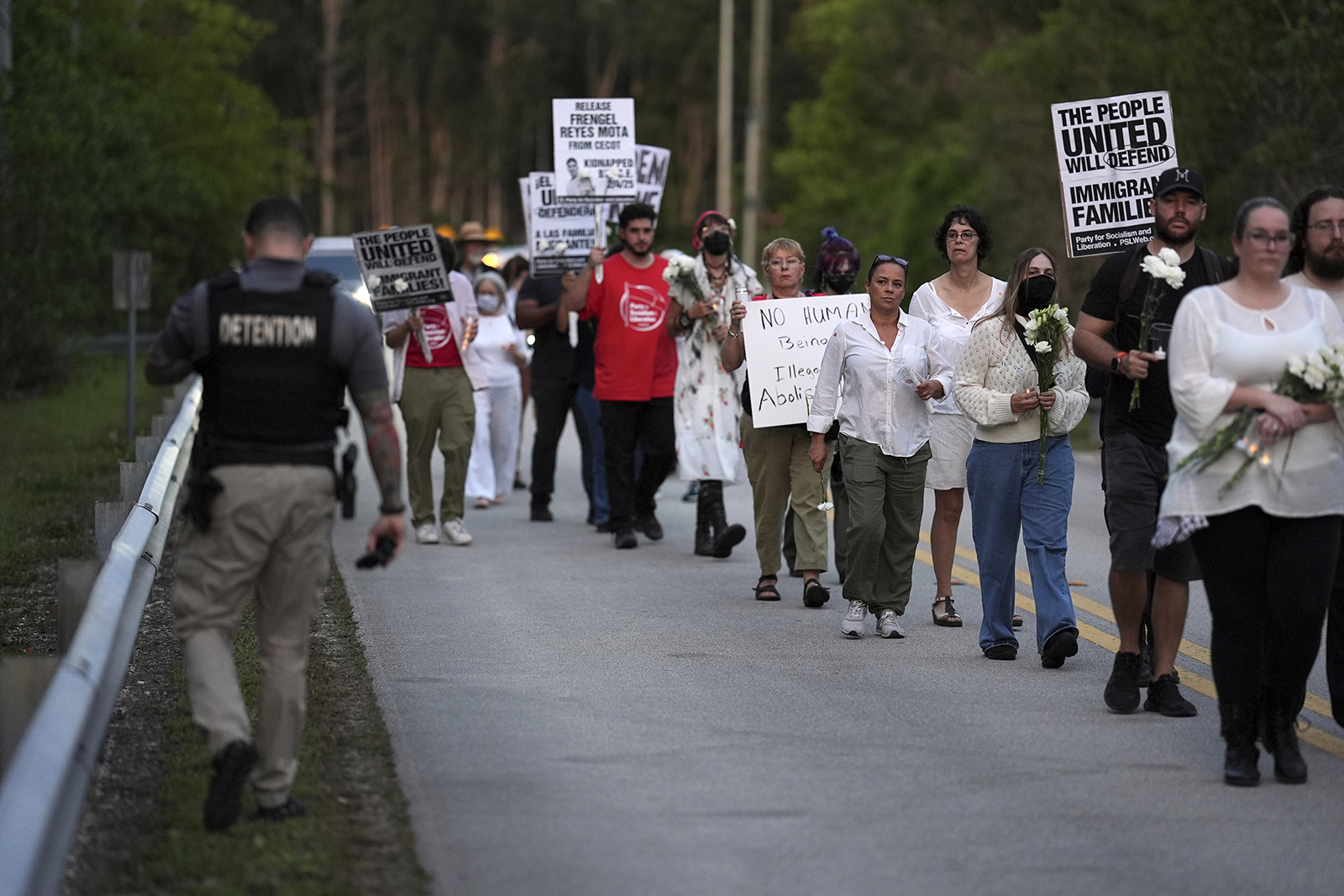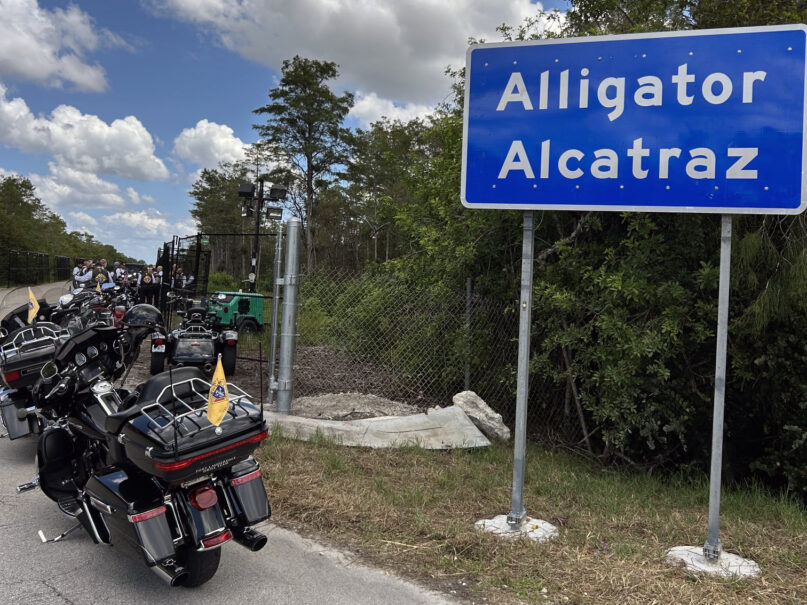
(RNS) — As Florida defends a state law that would criminalize undocumented immigrants entering the state, the South Florida Detention Center, known as “Alligator Alcatraz,” long criticized for inhumane conditions, remains open after its expected closure. On Wednesday (Oct. 28), two Catholic leaders who provide pastoral care in immigration detention centers condemned the facility and called for reform.
“The deportation is deliberately harsh,” said Donald Kerwin, vice president for advocacy at Jesuit Refugee Service/USA, during a webinar his organization held with Miami Archbishop Thomas Wenski. “People are being sent back to dangerous places. The detention conditions are horrid, and they’re almost jubilant about those conditions.”
JRS/USA is one of the few faith-based groups federally contracted to provide chaplains in immigrant detention facilities, serving five locations in four states, including Florida. With that connection, Kerwin’s remarks about the conditions were surprisingly revealing.
Wenski, a longtime critic of the Trump administration’s immigration policies, continues to be the only archbishop in the nation allowed to provide a consistent flow of priests inside immigrant detention facilities in Florida to celebrate weekly Mass and hear confessions.
“There’s a little over about 100 people that come to the Mass,” Wenski told RNS. “Sometimes more, sometimes less. The population of the camp changes.”
Since early August, after months of wrestling, the Archdiocese of Miami successfully struck a deal to provide priests to the state-run facility.

Motorcycles ridden by Knights on Bikes and Archbishop Thomas G. Wenski of Miami are parked in front of the entrance to “Alligator Alcatraz,” an immigration detention facility in the Florida Everglades, on July 20, 2025. (Photo courtesy of Archbishop Thomas G. Wenski)
The exact population of the site is unknown. In August, the Miami Herald reported that 1,800 men were detained, but because it is a state-run facility, unlike most detention centers run by the federal government, it lacks a system for tracking detainees as well as proper access to legal assistance.
“That’s part of the reason why the conditions, at least for access to attorneys for the detainees, is so difficult because it is a state facility, and anybody that needs an attorney would have to be taken to Krome, which is another 20 miles away,” Wenski said, referring to Krome Detention Center, a smaller, federally run facility farther inland, where priests from the Archdiocese of Miami also celebrate Mass on a consistent basis.
Once expected to close after a judge’s order, Alligator Alcatraz remains open after an appeals court halted the shutdown — a decision that has not only kept it operating but, as of earlier this month, appears to have intensified activity.
Meanwhile, JRS/USA currently holds a roughly $7 million contract with the federal government to provide chaplaincy services at five U.S. Immigration and Customs Enforcement detention centers in Arizona, Texas and New York, in addition to Florida. They employ 11 chaplains and staff who ensure that detainees can practice their faith, including via access to religious texts and services. The program has been active since the late 1990s and is subject to competitive contract renewals every five years.
Volunteers also play a crucial role in providing religious services to detained people across the country, but they face background checks and access restrictions to do so.

Miami Archbishop Thomas Wenski participates in a webinar hosted by Jesuit Refugee Service/USA. (Video screen grab)
Although immigration is a federal matter, Florida has closely aligned itself with the president’s agenda. Kerwin said that while Wenski has spoken out strongly against federal immigration laws and Trump administration policies, the state is mounting pressure toward enforcement, noting the law criminalizing undocumented immigrants coming into the state. Earlier this month, a federal appeals court panel questioned Florida’s authority to enforce the state law.
Wenski described navigating a complicated bureaucratic system when trying to arrange access to the detention center. He said immigration officials directed him to the state, while state authorities claimed it was a federal matter.
“It doesn’t make sense for the state of Florida, or any state for that matter, to be running a detention program on behalf of the state of behalf of the federal government,” Wenski said.
He said officials eventually acknowledged that the facility was state-run, but that lack of clarity contributes to poor conditions and makes it especially difficult for detainees to meet with attorneys.

